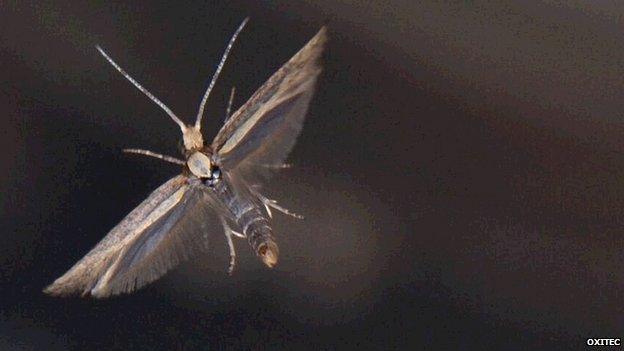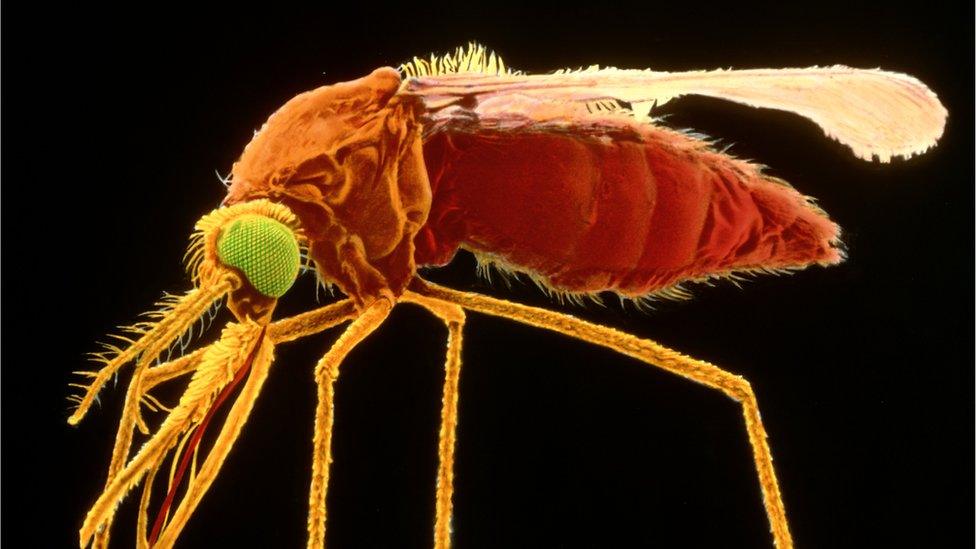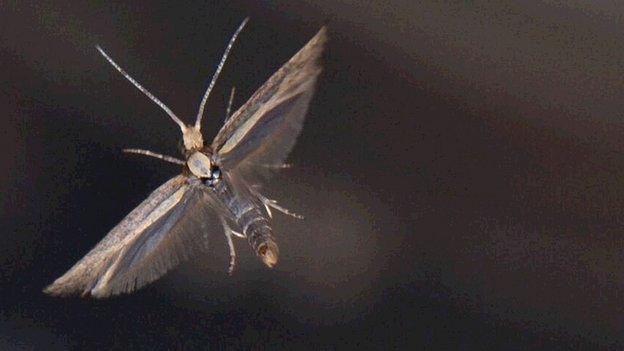GM insect trials urged for UK
- Published
- comments

Diamondback moths are not a threat to human health but do destroy crops
The government should launch a field trial of genetically modified insects, according to a House of Lords report, external.
The Lords Science and Technology Committee says GM could make insects unable to transmit diseases such as dengue and malaria.
It could also be used to control agricultural pests in the UK.
The report says EU genetically modified organisms (GMOs) regulation is "failing lamentably", and is "entirely on the basis of risk", ignoring the benefits.
Lord Selborne, who chairs the committee, said: "GM insect technologies have the potential not only to save countless lives worldwide, but also to generate significant economic benefits for UK plc, where we are an acknowledged world leader."
But he said the technology had come to a "screeching halt because the EU regulatory system is woefully inadequate".
GM insects are created by inserting DNA into their genome.
New gene editing techniques mean this can be done rapidly and cheaply.
One approach is to introduce a lethal gene whereby insects are able to reproduce but only to produce infertile offspring, with the aim of reducing overall population size.
Last week, a team at Imperial College London announced they had created an infertile GM mosquito.
Another approach is to modify an insect to make it immune to pathogens such as parasites, so preventing it from spreading disease.
The report says the government has a "moral duty" to test the potential of the technology and this should be used to drive public engagement.
Dengue threat
GM insect technology has already been trialled to combat dengue-transmitting mosquitoes.
Dengue is the world's fastest growing insect-borne disease, with about half the world's population at risk.
The viral infection causes a flu-like illness and can lead to fatal complications.
Small-scale studies in Brazil and the Cayman Islands, using sterile mosquitoes, resulted in cutting the numbers of dengue insects by more than 90%.
The studies were carried out by the world's only company currently trialling GM insects, Oxitec, based in Abingdon, Oxfordshire.
Oxitec, which was spun out from the University of Oxford, was bought by US company Intrexon for $160m (£106m) in August 2015.
Camilla Beech, head of regulation, said: "As the only company involved in the GM insect space, we recognise the potential for this science to contribute to global health and food security as part of an integrated solution.
"We agree that this potential can only be realised with a functioning regulatory system that considers risk and benefit, and an informed public."
The Lords committee said field trials against malaria and dengue would be unlikely in the UK, but there were agricultural pests here that could be targeted, such as the diamondback moth, which attacks brassica crops such as cabbages.
The report accepts there are several possible ethical and safety concerns surrounding the use of GM insects.
These included the possible impact on ecosystems, and the potential for unknown and unintended consequences.
Matt Shardlow, from the conservation group Buglife, told the BBC: "While there may be a useful and benign role for GM insects, the report glossed over the potential environmental risks of introducing them, without making a clear case for a UK problem that needs to be tackled, or therefore, the type of insect to be trialled."
- Published7 December 2015

- Published16 July 2015

- Published14 March 2014
